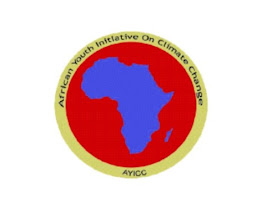IT IS NOT YET TIME TO CHANGE THE LANGUAGE
By Fredrick Ochieng` Mbima
During the inception of the United Nations Framework Convention on Climate Change at the Rio Conference in 1992, the language was that of disaster preparedness. Scientists had projected a world condemned by disasters due to an anticipated significant Change of the climate. The change whose cause was pegged on a significant increase in the global greenhouse gases due to increased industrialization would worsen with time therefore prompting preparedness. Scientists agreed that the threat would be more real when temperatures from preindustrial period increased above 20 C. This position has not changed since current commitments are still objected towards ensuring temperatures remain below 20 C by the year 2100.
The question is therefore, why the language has changed yet we are not yet close even to 1.50 C increase in temperatures. Why are current disasters identified with Climate Change yet the world is still at safe levels of the global temperatures. Increased droughts, world fires, prolonged and adverse El Nino events, typhoons and floods have recently been blamed on Climate Change with human rights activists and proponents of social justice calling for the world leaders to act and address the adverse impacts of Climate Change. Scientists and researchers on Climate Change have changed their tune and are now talking of building resilience and addressing loss ad damage in the context of social vulnerability. Civil society groups are piling pressure on the world leaders to honor their pledges on the Climate Change finance to ensure developing and underdeveloped countries are assisted to adapt. Apparently the model of sharing climate finance allocates more money to the countries responsible for emissions to mitigate their emission leaving on a smaller percentage to vulnerable countries to adapt.
The ignorant populace on Climate Change science are left to wonder whether the change of language is a genuine one or a political scheme by countries of the global north to recolonize the developing countries by building another narrative of dependence towards survival. The common statement of a common goal but differentiated responsibilities based on capabilities has not been followed to the latter. Instead we have seen a systematic ploy by developing countries to play victims of the climate change related disasters due to a lack of coping capacity and the developed countries pledging support on quid pro quos. This system has created a model of masters and servants, with servants lacking any capacity to adapt or address any natural disasters therefore having to plead with the masters to assist.
Denying that disasters have increased in both frequency and intensity and that small islands like Kiribati are receding would be irresponsible. However methinks this is a manageable local situation specific to different countries, which requires local political goodwill and policies before it becomes disastrous. During the drafting of United Nations Framework Convention on Climate Change, world leaders were concerned that human activities had been substantially increasing the atmospheric concentrations of greenhouse gases, that these increases would enhance the natural greenhouse effect, and that this would result on average in an additional warming of the Earth’s surface and atmosphere posing a potential threat to natural ecosystems and humankind. If we must rely on science that informed this position, then the language is still the same because the current Carbon (IV) Oxide concentrations have not pushed temperatures to dangerous levels but if uncontrolled, will. It is therefore not the time to adapt and build resilience but time to develop capacity towards triggering a positive variance.

Comments
Post a Comment